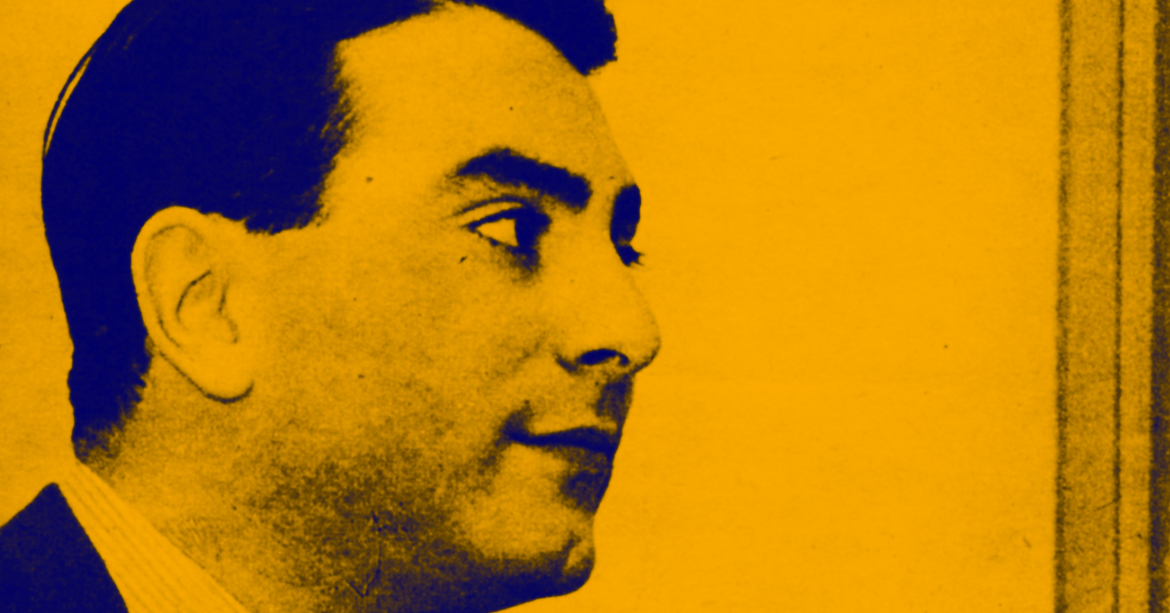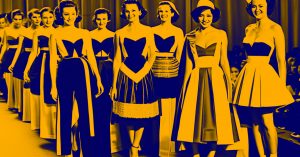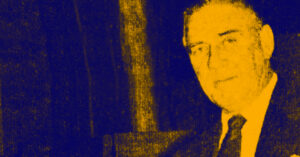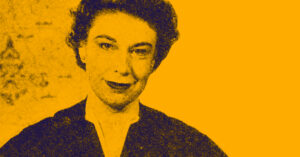‘I’m getting three years is hard’
Top producer BRIAN TESLER shortly goes over to Associated TeleVision from the BBC with one of the most tempting contracts ever offered in this country

‘I’m getting three years is hard’ says top producer BRIAN TESLER who shortly goes over to Associated TeleVision from the BBC with one of the most tempting contracts ever offered in this country. KENNETH ULLYETT reports

MANY top BBC producers have quit the Corporation and joined the “opposition” — Bill Ward, Dickie Leeman, Stephen Wade and a retinue of others.
But when Brian Tesler, senior among the BBC’s talented Younger Set, discloses he has signed a three-year contract with Val Parnell for ATV, well, things are getting serious. I went along to find out the facts from him.
Brian lives only ten minutes from the studios, and as it would seem like a stab in the back to discuss his ATV future on BBC premises, we met on strictly neutral territory.
But the BBC was phoning all the time, as technically Tesler has not yet quite left.
“Pet? No, she won’t be wanted for rehearsals until tomorrow,” Tesler was saying. “The Billy Cotton office? Oh, I would you tell him I wanted to discuss those back-projection shots with him…”
Out with a bang
Tesler laughed: “Here I am, supposed to be leaving the BBC, but after more than four years it takes a lot of stopping. Why, in my very last week at the studios I had three shows — the last of the Billy Cotton series, and the first two Petula Clark shows. I was able to produce those personally, and I have cast and laid out the rest of the series before leaving. It used to be a 15-minute show. Now it’s 30.”
“Let’s forget the BBC for a minute,” I suggested. But Tesler has certainly gone out with a bang. His first BBC TV show was on January 2, 1953, and his first programme for ATV will be January, 1957. A lot has happened in those four years.
He devised the original Ask Pickles show and produced it during its first year when it won the National Television Award as “the most entertaining programme.” He produced Bob Monkhouse’s Fast and Loose, and many other programmes including And So to Bentley, Bath Night with Braden. He also originated and produced many of the BBC’s panel games, including The Name’s the Same, Guess My Story, Find the Link and Tall Story Club.

“I might go back”
“So why quit now?” I asked bluntly.
“I’ll tell you,” he said. “Since ITV started, I’ve had several offers, and also counter-offers from the Corporation. It has been a tremendous privilege to work for the BBC, but I was only 23 when I joined, just over four years ago, and there is a great deal yet to do.
“Personally I think that this is the right time for me, having enjoyed the privileges of BBC television, to go out into the cut-and-thrust of commercial TV, instead of tying myself to the Corporation for another three years.
“It’ll mean at least ‘three years hard’ in a tougher, sterner Show Business world but, after all. I’ll only be thirty when my ATV contract expires, so there’s plenty of time to decide what comes afterwards. Who knows? I might go back to the BBC again!”
“Why didn’t you leave when some of the other BBC producers did — Dickie Leeman for instance?” I asked.
“I was under contract,” he explained. “And, although I was invited then, I did not think that was the right time. A producer has an obligation to the public he serves, and when rumours began going round I was leaving, I was actually very busy on a long programme schedule — so that, quite apart from my BBC contract, it would have been wrong then to make a change.”

On the fence?
Certain critics have suggested that several big BBC producers sat on the fence, waiting to see if commercial TV would be a success. Then, when ITV was able to provide all the best equipment, they went over.
“That’s not my point of view at ail,” stated Tesler. “True, many branches of commercial TV had new equipment, but in many respects the BBC still has the finest technical resources. The cameras and electronic gear at the King’s Theatre, Hammersmith, for instance, are among the best in the world. Even the Americans admit it. The BBC has all the electronic gadgets like interlay and overlay, which at present ATV and the other commercial companies have not.
“No, I am not going to the rival camp expecting to get better equipment. I am going because — especially at my age — I don’t believe in staying in a rut. And of course, working with the big Show Business groups such as Delfont and the Grades, I hope to have many top names at my command — celebrities who seldom televise on a BBC budget.”

Too young
“Your ATV appointment came as a surprise to some who regard you frankly as a highbrow,” I said, for Tesler is an Oxford man, with a first in English Literature, and an M.A. degree. Well, do you picture a Master of Arts running a TV cash quiz?
He laughed. “That’s only part of the story. I wrote songs — and plugged them — before I joined the BBC. But I was too young to be Big Time, so I never became an Irving Berlin or a Gershwin!
“Why should I be ashamed of having a rather academic background? I have proved to myself that I have a certain flair for popular presentation in TV. I get a kick out of producing series like that of Billy Cotton and am absolutely in sympathy with the medium.
“There is hardly a BBC panel game that I haven’t either produced or helped to originate. A good television producer should have the most catholic tastes. I should hate to be typed as a highbrow — or a lowbrow.”
“How do the ATV studios compare with the BBC’s?” I asked.
“I’ll know when I’ve seen them!” Tesler said. “With the Pet Clark and Billy Cotton series on my plate, I haven’t even had a chance to see the TV variety theatre at Wood Green. My office will be at Television House, but I haven’t seen that either.”
“Was there a big meeting with Val Parnell?” I asked, believing that most viewers are curious to know how an impresario puts a producer under contract.
“There hasn’t been time for us to meet,” Tesler astonished me by saying. “In fact it all began with a phone call from Bill Ward, ATV’s production chief, It was generally known that my present BBC contract expired in December, and there had been two sorts of rumours— that I was wedded to the BBC and wouldn’t leave and, contrary, that I was going off to commercial.
“Bill rang to find which rumour was true, and from that opening conversation it all started. But there have been no big business meetings, no elaborate lunches. Not even a coffee!”

Familiar faces
As Tesler has done so many BBC panel games, it is natural to expect him to be Panel Game King of Commercial. He made a wry grimace.
“I think it would be true to say I have had my fill of panel games,” he said. “You must remember that while there is a special sort of satisfaction in producing a panel game, the real satisfaction in my line of TV producing comes from the musical and variety shows.
“It’s a strange thing, but my very first artist, when I produced Starlight back on January 2, 1953, was Pat Kirkwood. And since then she has really become my TV mascot. One of the most satisfying musical programmes I’ve done (well, satisfying to me!) was the ninety-minute Story of Vesta Tilley, which the BBC commissioned from Hubert Gregg, and which starred Pat.”
“Do you think that working for commercial will be a refreshing change?” I asked.
“In some ways it’ll seem like being back home,” he grinned. “Why, apart from working again with old colleagues like Dickie Leeman, Bill Ward and Stephen Wade, there are many former BBC cameramen… Colin Clews, for instance, and many more, now producers and directors for commercial. So I’ll be once more among the familiar faces.”
“What difference will it make to you economically?” I asked, knowing that he will be getting much more at ATV. He looked gloomy.
“Oh, that’s pretty difficult,” he admitted. You see, I live ten minutes from the BBC studios, but now it’s going to take me 45 minutes to get to the Wood Green Theatre, and to Television House. I ask you. The petrol coupons——!”
“Never mind. There’ll be a celebration party I suppose?”
“I’m having a small farewell party. Not a celebration. Frankly it will be a sad thing, leaving the friends I’ve made in over four happy years.”
“And who’s going to take over the Billy Cotton Show after you’ve gone?” I asked.
“That, said Tesler, straightfaced and in his best BBC manner, “is a major policy decision. You should address your enquiry through the proper channels…”




